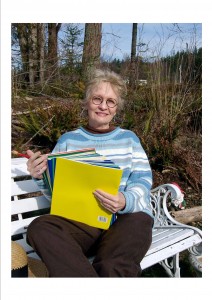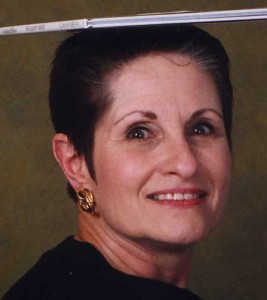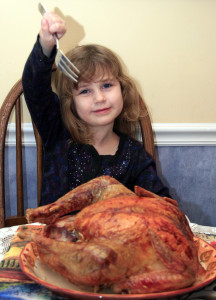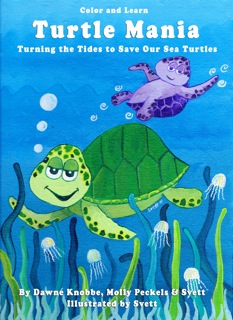
Laurie: Question
When you were reading the letters of correspondence between your parents, that led to your latest book, With Love Wherever You Are, how did you decide what letters should be shared with your readers and what letters would remain private?
Dandi: Answer
That was one of the hardest parts of writing this book! I wanted to include all 600 letters because they were meaningful to me. But I had to cherry-pick the ones I thought would be interesting to readers and ones that advanced the plot and stirred up conflict or showed a side of WW2 rarely shown. My first complete draft ran about 1,000 pages, so I had to cut, cut, cut. If my mom were still alive, I might have let a few of the letters remain private. But I didn’t want to soften or undercut the reality of newlyweds separated during war.
Dandi: Question
So, Laurie, what do you think? Should writers refrain from writing things that might embarrass or upset relatives?
Laurie, Answer
Most writers use their personal experiences to pull from for their writing. Anyone who knows a writer well should realize that most any interactions between them may end up as a character or a scene in a book.
It’s funny, because I have an example between the two of us. I shared a story with you about my daughter’ s ex-boyfriends. She was collecting dogs from each ex. I remember you laughing and saying, “Wouldn’t that be a funny premiss for a book!” and thus My Boyfriends’ Dogs was born.
I believe that an author needs to consider the collateral damage against the assets to the story. I remember having many discussions with you on how you would proceed with the letters and I believe you truly struggled with your choices. You considered the collateral damage and used strong letters that would move the story forward without being disrespectful to your parents.
Laurie: Question
You were a writer from an early age. Your book, A Girl Named Dan, was inspired by an essay that you wrote when you were 11years old. What advice do you have for young aspiring writers?
Dandi: Answer
1. Good for you! Most kids (and grownups) hate to write. So, if you like to write, you should go with that and hone your gift.
2. Read, read, read! You need to study the way writers do things you want to do. If an author creates suspense so you can’t put that book down, ask yourself how she did that. If you laugh at something, figure out how the author got you to laugh.
3. Be observant. Writers are people who notice things other people walk past. Writers find significance in the details and little things of everyday life. Jot your observations in a notebook you keep with you at all times.
4. Write! Write like crazy.
5. Welcome criticism. Yep—It hurts. But you want to improve, right? Take all the advice and criticism you can get for your writing. Just don’t take it to heart.
Dandi: Question
Laurie, do you have some advice of your own? What about where a young writer could submit a story?
Laurie: Answer
I’d suggest that when you find a book that catches your attention that you write out segments of the text, paying attention to:
A ) how punctuation is used
B) how dialogue gives information to the reader
C) what physical action is used to move the story forward
D) what sensorial words are used
E) how tension is used in a scene.
By writing the text you will get a firsthand experience of how the writer used punctuation, dialogue, action, sensorial words and tension to strengthen his/her story telling.
Where to submit written material:
I did a little research and The Children’s Book Guild has a wonderful list of publishers who publish the work of young people. Here is a connection to their web site.
https://www.childrensbookguild.org/about-the-guild/faqs/73-where-can-i-get-writing-by-children-published
Laurie: Question
The Secret of Tree Taylor is based on an event (or a murder) in your hometown. How do you as a writer decide to write fiction or non-fiction?
Dandi: Answer
Much of that novel actually happened, and the people are real too. If I’d stuck with the facts, I don’t think I could have told the story I wanted to tell. I wouldn’t have been able to create dialog, and I wouldn’t have been able to guess at thoughts. I love writing almost-true novels (fiction based on true stories and events). That way I can fill in the blanks and stay honest with the reader. I can adjust the timeline and weather to suit the needs of the story. I can leave out boring dialog, change names (as “Dandi” to “Tree”), and intensify conflict. My husband does a beautiful job of writing nonfiction narrative (Plain Secrets: An Outsider among the Amish). He would never combine characters or change events or weather or dialog in any way. He and I agree that I should stick with fiction because I’m never satisfied with fact.
Dandi: Question
Laurie, have you written any nonfiction? How did you stick with the facts?
Laurie: Answer
I have written some non-fiction in craft books, Christian materials, and a cookbook. It is important that you triple fact check and always use original sources when possible.
Laurie: Question
In Larger-Than-Life Lara, you used the vehicle of written storytelling to unfold the story of Laura’s being bullied and a Laney’s dysfunctional family. How do you think using this additional layer added to the significance of Larger-Than-Life Lara?
Dandi: Answer
I think writing LARA was the most fun I’ve had writing any book. The layers surprised me, and so did the characters. Our narrator, Laney, doesn’t want to talk about herself or let the reader in, but she does both of those things inadvertently as she tells her story. That book has been used in elementary schools, English and language arts, but it’s also used as a text in high schools and universities. I consider it my miracle book.
Dandi:Question
Laurie, do you remember how you called me every day to see what was happening with Lara and Laney?
Laurie:Answer
I do remember that fondly. Larger than Life Lara, is in the top three of my favorite books you have ever written. Being a part of, listening, and watching the characters coming to life was a personal experience for me. Each of the characters was REAL, and I couldn’t wait until the next day to hear where they were going. I know when you got to the end that it felt rushed and we discussed ways to make a more satisfying ending. With some rewriting you totally nailed the ending, and I know many children have grown from reading your beautiful prose.
Laurie: Question
Who was the most influential storyteller in your family?
Dandi: Answer
Honestly, it’s a tie between my mom and my dad, both great storytellers, with great stories to tell. I loved hearing how they met in Army training, Army Nurse and Army Doctor in WW2. Then they married in haste and were sent to the front-lines, to different countries. So many stories!
Dandi: Question
Who was the most influential storyteller in your family
Laurie: Answer
That would have been my father. He had a quick wit, and a story for everything. He was very animated when he told his stories, and we’d all sit glued to our chairs waiting for the twist at the end of every story. For a child who couldn’t sit still, it was quite a big deal for me. I know I learned my storytelling skills from him and will forever honor him by telling my stories.
Laurie: Question
How has that style of storytelling affected your voice as a writer?
Dandi: Answer
My favorite stories were about the lives of my parents and their relatives. Maybe that’s why I don’t seem to be able to write a story that doesn’t have my relatives and me in it somewhere. They used details that embedded each story in my brain, and I try to use the power of the right details in whatever I write.
Dandi: Question
How has that style of storytelling affected your voice as a writer?
I know that I am a better speaker from watching my father’s style at storytelling. He was a prosecuting attorney and would practice his closing arguments after we were sent to bed. I’d listen by the furnace grate late into the night. I got caught one night because I was so enthralled by his speech that I crawled down the steps and gave him a standing ovation at the end.
I held onto how his voice would rise and fall, and how strong a pause could be in the middle of a sentence. I was able to transfer that knowledge into my writing and it has served me well.
Well, Dandi, I’ve enjoyed our conversation. Thank you for sharing with our readers!





 Well New Years has officially come and gone, along with everyone’s New Year’s resolutions. I have not forgotten mine nor procrastinated on any I made. Mine are still 100% intact. I didn’t make any. I never keep them so I figured why waste time writing any down, feeling guilty because I don’t keep them, and having to find excuses for my lack of follow-through. The only reason I am writing my blog entry in the month it is due has nothing to do with making a resolution to be more conscientious. No. It has to do with the paper I found on the floor behind my printer that was Judy’s November e-mail telling all the Mavens when their blog posts were due. I had forgotten all about it. And, since I am going to stay at Judy’s house next week and I don’t want to give her ANOTHER reason to nag me, I am on it. She has plenty to nag me about already and I deserve the nagging. No New Year’s excuses here, either. Anyway Happy New Year, one and all.
Well New Years has officially come and gone, along with everyone’s New Year’s resolutions. I have not forgotten mine nor procrastinated on any I made. Mine are still 100% intact. I didn’t make any. I never keep them so I figured why waste time writing any down, feeling guilty because I don’t keep them, and having to find excuses for my lack of follow-through. The only reason I am writing my blog entry in the month it is due has nothing to do with making a resolution to be more conscientious. No. It has to do with the paper I found on the floor behind my printer that was Judy’s November e-mail telling all the Mavens when their blog posts were due. I had forgotten all about it. And, since I am going to stay at Judy’s house next week and I don’t want to give her ANOTHER reason to nag me, I am on it. She has plenty to nag me about already and I deserve the nagging. No New Year’s excuses here, either. Anyway Happy New Year, one and all.


